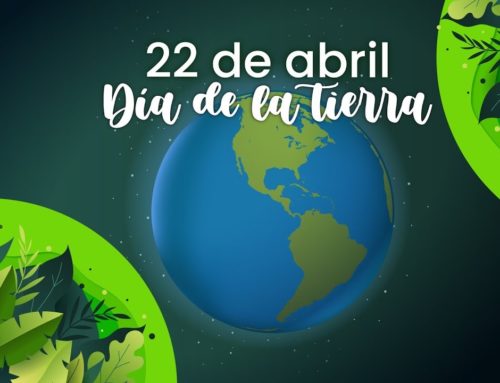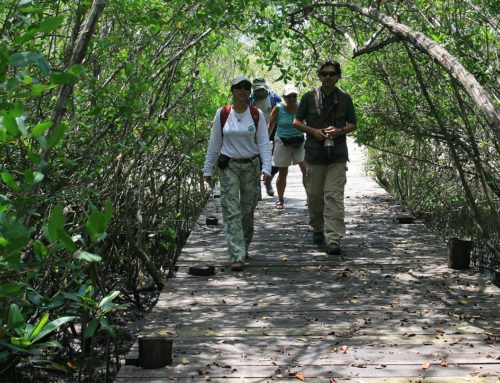
Climate Change Every Action Counts.
Glasgow Scotland 2021, the COP 26 climate summit brings together activists, scientists, environmentalists, celebrities and of course political representatives from various countries who intend to commit to transform the bleak scenarios that are looming by the global climate crisis.
Here I summarize the subject, reviewing concepts and proposing actions that human beings should carry out individually, be an example in our family and community, in order to join the efforts to mitigate Global Warming.
Climate change is the global variation of the Earth’s climate. This change is due to natural causes and also largely to the action of man, this change occurs at very different time scales and on all climatic parameters such as: temperature, rainfall, cloudiness, relative humidity among others.
Globally, the temperature in the Earth’s atmosphere has increased by 0.85 ° C and it is expected that by the end of the century the increase will be greater than 1.5 ° C. This increase is known as Global Warming and is caused by the accumulation of certain gases in the Earth’s atmosphere, which result in the greenhouse effect.
The term “greenhouse effect” refers to the retention of the sun’s heat in the Earth’s atmosphere by the accumulation of certain gases. Without greenhouse gases, life as we know it would not be possible, since the planet would be too cold.
These gases include carbon dioxide, nitrous oxide and methane, which are released by natural processes on the planet such as emissions from active volcanoes or forest fires caused by natural phenomena, however it should be noted that since the industrial revolution the greatest contribution of these gases to the earth’s atmosphere is due to anthropogenic activities such as the combustion of fossil fuels, industry, agriculture and deforestation.
In other words, the consumption of oil, gas and natural coal to light cities, power our vehicles, fly our airplanes and produce goods on a large scale generates the most greenhouse gases, thus catalyzing the warming of Earth’s atmosphere globally, thus accelerating climate change.
There is scientific evidence that warns us of the risks that humanity faces due to the global increase in temperature: melting of the polar zones, rise in sea level, intensification of cyclones, droughts, alteration of the water cycle, extinction of species, food shortages and disease proliferation.
Due to this situation, the United Nations Organization and the World Meteorological Organization, among other international organizations, supported the creation of the Intergovernmental Panel on Climate Change (IPCC), where expert scientists from around the world participate. The panel collects the results of the most advanced studies of the evidence of climate change every four years, and them worldwide.
In the same vein in 1992 during the Earth Summit, the United Nations established the United Nations Framework Convention on Climate Change (UNFCCC), where countries establish agreements, treaties, protocols and other types of legal instruments to combat climate change. This Convention holds an annual meeting, known as the Conference of the Parties (COP).
In summary, there is worldwide consternation over the consequences of climate change, and curiously this situation with scenarios ranging from worrying to fatalistic, in the short, medium and long term, has been accelerated by our unbridled and modern lifestyle, and the most affected undoubtedly will be the humans beings, except of course those who are capable of adapting to new weather conditions.
Each of us has the possibility to stop this situation if we review our daily consumption and take permanent actions that reduce our contribution of greenhouse gases to the atmosphere.
Some of the actions we must do to mitigate climate change are:
- Turn off the lights in rooms that you are not using.
- If they are not being used, turn off and unplug the television, radio, computer, DVD, mobile device chargers and in general any appliance.
- Close the refrigerator door tightly.
- Buy energy-saving or LED bulbs.
- When possible, walk, bike, share a car with coworkers, or use public transportation.
- When cooking, cover the pots and cook over low heat.
- Reject plastic.
- Buy locally sourced food and beverages to avoid moving from other destinations.
- Use the essential water, for example: bathe in the shortest time possible, close the tap while we lather the dishes, etc.
Encourage and participate in reforestation in your community.
- Consciously apply the POWER of the consumer:
REFLECT on your power as a consumer,
REJECT what you don’t need.
REDUCE your consumption to what is really necessary.
REPAIR what you already have.
REUSE what already exists and avoid disposables.
RECYCLE what you couldn’t use.
REBOUND your organic waste to the earth.
RESIST remember EVERY EFFORT counts.






